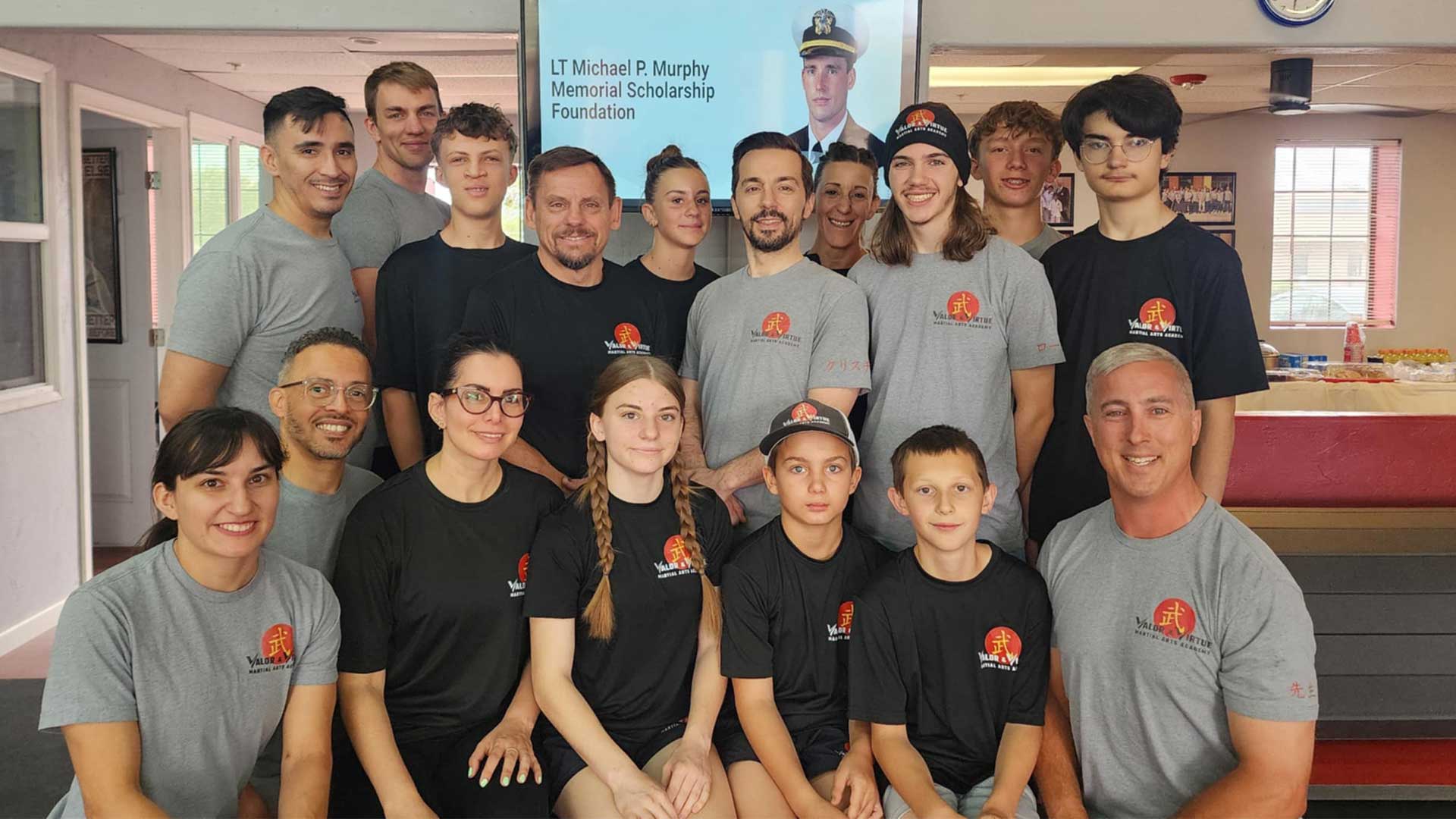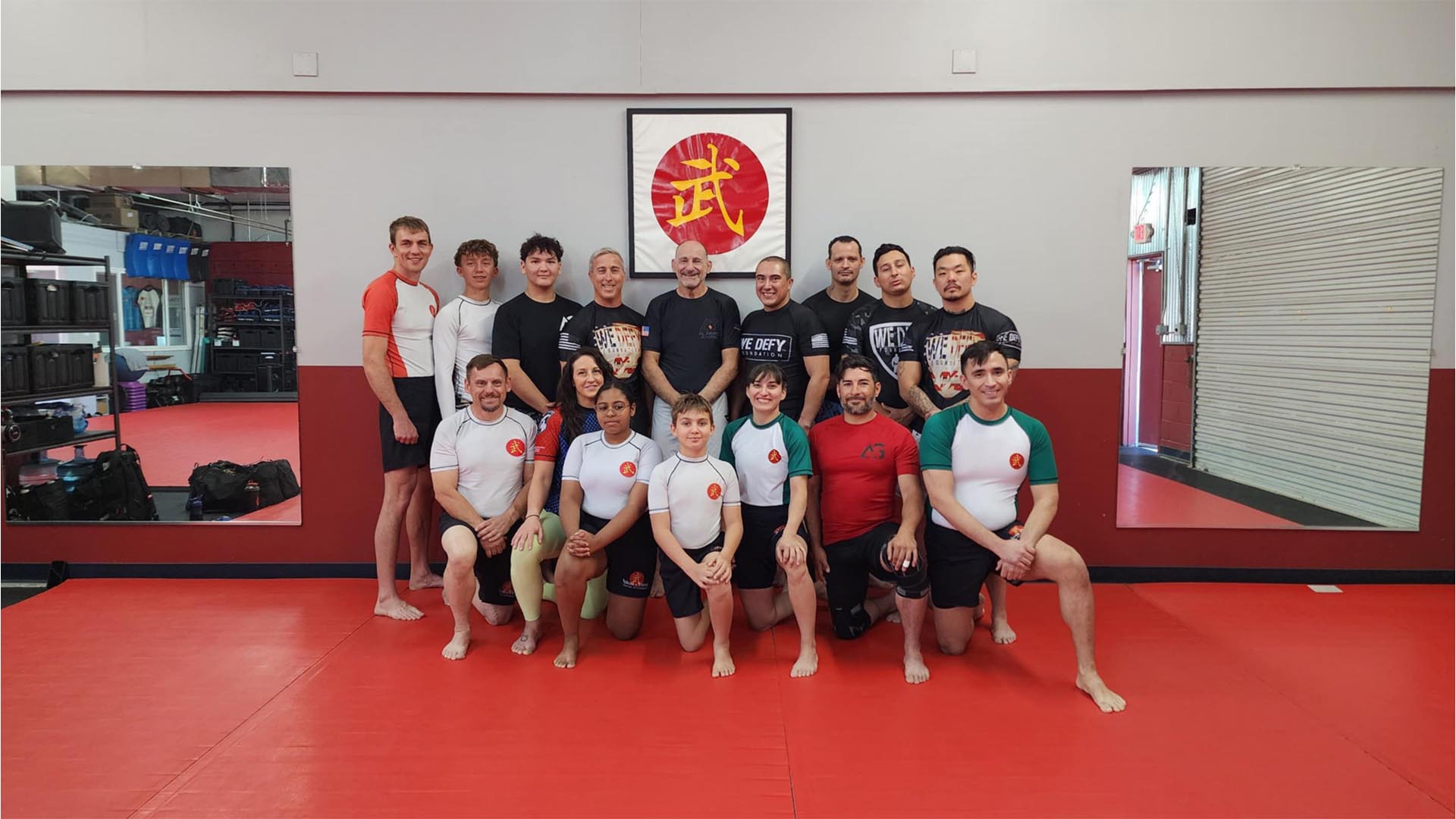Will martial arts make my child violent?
No. Our program raises highly disciplined individuals who exhibit self-restrain and self-control. That being said, violence exists, and there are violent threats on our youth. Our students know that only in times real threats on one's safety should physical engagement be used. The core principles of Valor & Virtue Martial Arts Academy LLC is solving problems by peaceful resolution and having the self-confidence to not rely on violent behavior.
What's the difference between the Karate & MMA programs?
Think of differences (and similarities) between two languages like English and Japanese being taught at a single language institute, for example. Students of Japanese would need to have certain drills to build the particular skills needed to be literate in Japanese since there are four writing systems: hiragana, katakana, roomaji, and kanji. Learning to read and write in English will require other drills to build the particular skills needed to master the spelling system and understand the breadth of borrowed words in English. The overall goal of the language institute is to raise well-rounded and literate students regardless of which language they are studying. Our goal is to foster 'Survival Competence' in our students regardless of whether they are in the karate or MMA program. One clear difference between our Karate and MMA programs is the platforms in which our students compete: karate students compete in karate tournaments, MMA students compete in no-gi grappling/jiu-jitsu tournaments.
My child is not very athletic. Will they pass TRYOUTS?
Athleticism is one of several things we look at during tryouts — but it’s not the only thing, and certainly not the most important on its own. Our goal is to see whether a child is physically and mentally ready to begin training safely and successfully in our program.
We also consider focus, attitude, effort, listening skills, and the ability to follow instructions. Many kids who aren’t naturally athletic excel because they show determination and a willingness to try their best.
If we feel your child isn’t quite ready, we’ll give you clear feedback and guidance on how to help them prepare. We’ve seen many students return after working on a few things — and thrive.
Will my child be injured if they practice martial arts?
There is a chance of physical injury with any form of exercise. We take very special care to supervise all exercises to see that the students are performing them correctly. Sparring is only performed at higher levels by those who wish to participate and we feel have the skills to spar in a safe manner.
How fit do I have to be to take an adult martial arts class?
You don’t need to be in peak shape to start, but our adult program is physically demanding — and we do require all prospective students to complete and pass a tryout.
That tryout helps us assess more than just current fitness: we’re looking at coordination, effort, mindset, coachability, and your ability to move safely through the basics. Most adults who succeed in tryouts aren’t elite athletes — they’re people who show grit, humility, and a willingness to be coached.
That said, we do assume a baseline level of physical readiness. This means you’ve had some recent experience moving your body — whether that’s working out, playing sports, or doing other active hobbies. If you're just getting started with physical activity, we’re happy to recommend ways to prepare for the tryout.
We don’t expect perfection — but we do expect commitment. If you’re serious about learning and growing, we’ll meet you where you are and help you rise.
I have a past injury or medical condition. Can I still participate in TRYOUTS?
Possibly — but it depends on the nature of your condition and what your body can currently handle safely. That’s why our process begins long before tryouts. All prospective students first observe a class, take part in a 1-on-1 consultation, and attend a New Student Meeting. These steps give us (and you) a chance to assess whether the demands of our program are a good fit.
That said, there is no substitute for professional medical advice. If you have a current or past injury, chronic condition, or any health concern, we strongly recommend that you speak with your healthcare provider before trying out. We’ll be happy to answer any questions your provider may have about the physical demands of training.
Your safety is our priority. If you're cleared to train and ready to work, we’ll do everything we can to support your progress — responsibly.
My schedule is very busy, and I may not be able to attend all the classes. Is good attendance required?
We understand that life can be hectic, and occasional absences are inevitable. However, consistent attendance is crucial for achieving the learning outcomes and personal goals set within our program.
Our curriculum is designed to build upon each class, and regular participation ensures steady progress and mastery of skills. While we recognize that occasional conflicts arise, students who maintain an average attendance rate of less than 85% per quarter often face challenges in meeting the program's objectives and their own aspirations.
We encourage students to prioritize their training sessions and communicate any scheduling conflicts in advance. Our team is committed to supporting you in balancing your commitments and ensuring that your martial arts journey remains on track.
How much do your classes cost?
That’s a fair question — and also a tricky one. Unlike coffee, martial arts programs don’t come with a standard price tag you can compare across the board. In Tucson, you can find a decent cup of coffee at a gas station or donut shop, or spend a lot more at a boutique café. Both are technically “coffee,” but they offer very different experiences.
Martial arts schools are the same. You might see a range of prices, but what really matters is what you're getting — the structure, the coaching, the culture, and the long-term impact.
Our tuition is consistent across our programs, but we don’t list it publicly because pricing without context invites comparison without understanding. Before we ever talk about tuition, we invite every prospective student to observe a class, participate in a 1-on-1 consultation, and attend a New Student Meeting. That way, you can see what we do, how we do it, and whether it's the right fit for you or your child — not just financially, but personally.
We’re not aiming to be the cheapest option — we’re focused on offering real, lasting value. If that sounds like what you’re looking for, we’d love to meet you.







